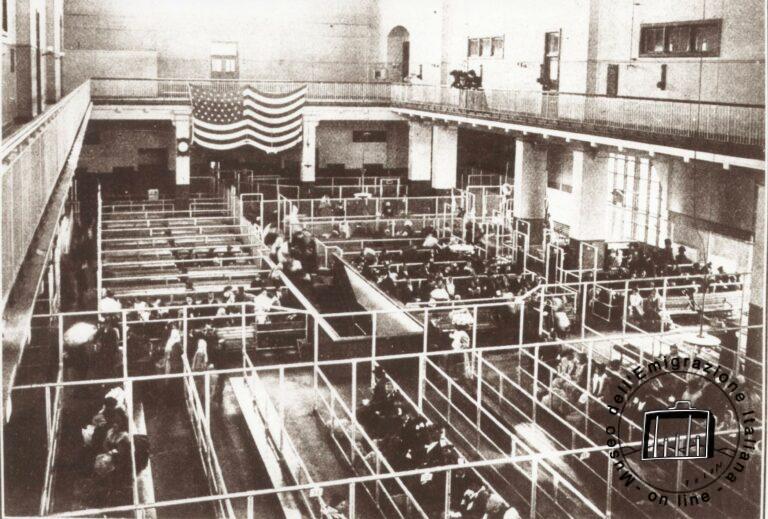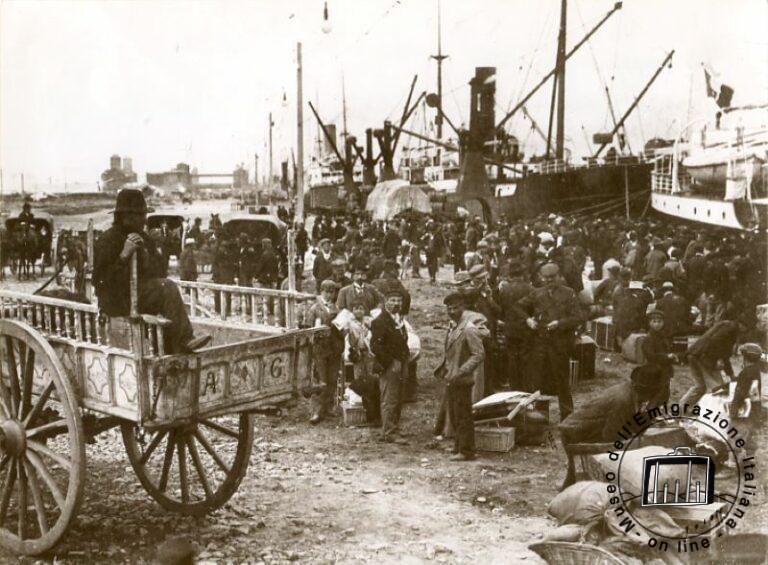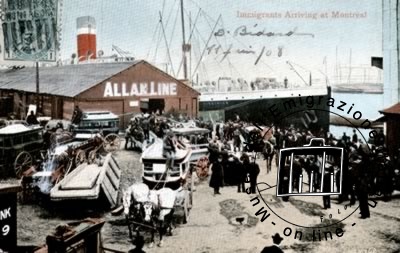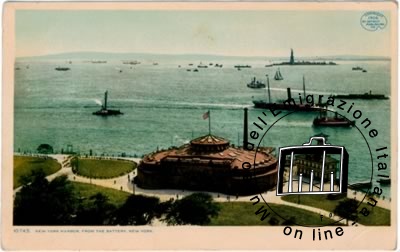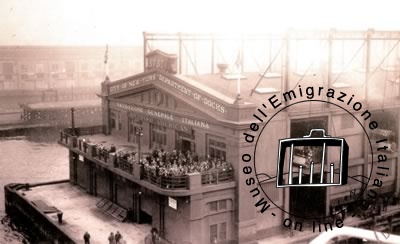In the earthly paradise promised by the "Guides," things were actually different. Soon after arrival, immigrants were beginning to realize that they had arrived in America as it was and not as they had dreamed it would be. The earthly paradise images with which they had filled their eyes and minds found little match in the burdensome bureaucratic formalities to which they were subjected, and, at least in the United States, many were those who were turned away especially because they suffered from disabling diseases.
Those who were admitted into the country were treated, and bargained for, as at a cattle fair or slave market. In addition, various measures were enacted over time to restrict the scope of migratory flows. Therefore, in addition to constantly enforcing, during the quarantine period at Ellis Island, strict sanitary regulations, they enacted in 1917, after twenty years of "threats" in this regard, the Literacy Test and, through the control of illiteracy, imposed an effective clampdown on immigration. Subsequently, in the early 1920s, access "quotas" were established by law. In practice, it was determined annually by the relevant authorities how many immigrants of each nationality could enter the country, in the course of precisely one year.
In Argentina and Brazil, countries that welcomed large masses of Italian emigrants, disembarkation was also not easy. From the ship one reached land after transshipment on boats and small boats (in Argentina the last stretch of water was crossed on horse-drawn carts while in Brazil, from the port of Santos, one reached São Paulo by train).
Once on the mainland, people were housed in what might be called restraint facilities-the Hotel and the Immigrant Hospedaria.
The governments of the two countries offered general information on local customs and traditions in addition to the help of labor offices that, however, operated without any form of selection of newcomers based on job skills.
In reality, the emigrant's strong point was the "migratory chain," the network of relatives, friends, and fellow countrymen who, having already experienced the exodus, guided him or her at every stage of the expatriation and facilitated his or her integration into the destination country.



